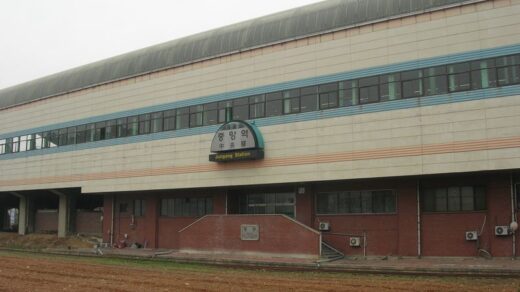KBC Intern Jared Muloonga is preparing a series of interviews with people “in-the-know” about getting a job in Korea as a foreigner. This will become a major feature on KBC soon in order to help our members who are looking for information about this.
In advance of that, Jared ran his questions by me and, while I’m not necessarily “the expert” on this topic, I have done my best to answer his questions so that he can have an idea of what to expect in the actual interview series.
1. Does GPA / great academic results matter when applying for a job in Korea?
A decent GPA is good, but what will really catch the eye of a Korean company would be a famous university. Since there is such a strong ranking system of universities in Korea, Koreans also apply their best understanding to rank international universities, also. Thus, rather than pointing out how great your grades were, that effort would be better spent explaining why your university was a good one.
2. Korea is big on ‘Woori’ so when hiring an individual, does personality matter?
I wouldn’t think that Koreans are looking for a particular “personality” type; but what they do want is people who will be able to fit in to the Korean workplace. Showing that you’ve made a special effort and will “follow the rules” when you get into a Korean company is most important. Becoming a KBC Certified Business Professional is a great way to show that you’ve made a unique investment in succeeding in a Korea-based position.
3. How does one get noticed or become visible to hiring managers in Korea?
My answers to questions #1 and #2 mention two ways to get noticed (i.e. demonstrating prestigious educational achievement and showing an extra effort to fit in to the Korean workplace).
However, foreign job seekers don’t generally go through the regular hiring process for Korean companies. Applying for a regular entry-level job would certainly be noticed, but it’s unlikely that foreign candidates would be seriously considered for these jobs. Therefore, as a foreigner, you have both the advantage of standing out no matter what job you apply for and the disadvantage of needing to do more homework to find job openings. In addition, there may be opportunities to approach Korean companies and propose the creation of a position that you’re uniquely suited for; this would take an extraordinary extra effort.
I also find that Koreans are not generally as reliant on email as we are back in the West. So there’s a good chance that emails sent to hiring managers will get ignored (especially if the email is sent in English and the recruiter isn’t comfortable in English).
In-person efforts are surely going to be more effective. For example, how many foreigners do you think just show up at companies asking to speak to the hiring manager about openings? The answer is probably “almost none”. But the unusualness of such an effort means that with persistence, you should be able to get in and talk to people.
4. How does one utilize the network they gain wisely in order to gain a Job?
Cultivating a business network in Korea is crucial, especially for foreign job seekers, because many job openings for non-Koreans are not published and can only be found out about through personal connections. For example, I got my job at LG back in 1994 because a fellow teacher at the institute where I worked was friends with the guy at LG who had been commissioned to find a foreigner for their office and the job was never publicly posted.
On-the-ground efforts that go beyond the ordinary should be the goal of every serious job seeker, and especially through an effort to properly build one’s network.
5. How would a hiring manager look for potential candidates to hire?
For positions to be filled by Koreans, the approach would be very systematic and based on a pre-established schedule. But for foreigner positions, things are much more haphazard and depend on whatever approach the hiring person chooses to take. My example of getting the job at LG is probably typical.
6. How would potential candidates use a resource like KBC in your opinion?
KBC is a place for buildiing one’s network, learning about Korean business (both through the Topic Central pages and the discussion) and earning a recognized certification (KBC Professional Certification Program), but it is not (yet) a destination for links to easy job openings. Serious candidates will have to go much further.
7. What kind of resumes gets noticed in Korea?
A resume written in English is unlikely to get read unless the person doing the hiring is very comfortable in English. Therefore, it almost seems a requirement to get your resume translated to Korean. Also, Koreans want to know certain things that aren’t generally shared on Western resumes, such as age.
8. What can individuals expect to be asked when applying for a job in Korea?
It depends, of course, on the job, but at an entry-level for a foreign candidate, the questions are likely to be a little silly. I think my questions at LG centered around whether I liked Korea and Korean food. Peppering one’s answers with a few memorized Korean greetings and phrases will elicit a laugh, and impress your interviewers that you have made some effort. Be sure to explain that you’re really serious about Korean business, as evidenced by your KBC Korean Business Professional Certification certificate.
9. What positions should individuals seek to apply to when they are trying to get into the Korean job market?
This one’s tough.
It will be difficult to get a job based just on skills that Koreans are already strong in, such as IT, business and engineering. With the difficulty Korean entry-level job seekers are having getting jobs in their own country, there’s little chance that a Korean company will hire a foreigner into a position unless they think that foreigner can bring them something that nobody in the Korean job pool can otherwise.
For individuals from English-speaking countries, positions that help Koreans improve their English and understanding of leading markets will be the most natural fit. For those without this advantage, the options become more limited. I would think that demonstrating your understanding of a market that Koreans are interested in and persuading them that you can help them break into that market (in your case, the area of southern Africa) would be a good starting point.
10. When individuals have little or no experience what can they include in their Resumes to show that they have the necessary skills to make up for the lack of work experience?
Koreans are very big on internships these days, particularly internships in overseas markets. Your internship on KBC isn’t exactly what Koreans will be looking for, but it will raise an eyebrow and add to your overall image as someone committed to Korean business. On the other hand, they will be more interested in work-experience in a market in which they are interested. For example, if you can demonstrate connections or internship experience in a southern African country that a particular Korean company is looking to do business in, then that would be an attention-getter.





